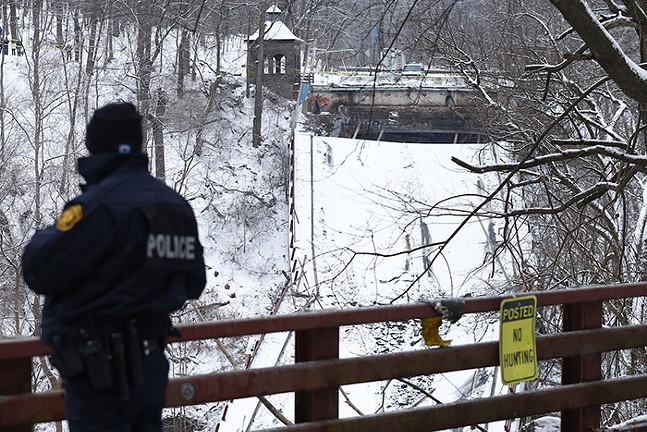The recent collapse of the Fern Hollow Bridge, also known as the Frick Park Bridge, has reignited calls to improve Pittsburgh’s infrastructure or suffer another, similar disaster. Just days after the incident, Pittsburgh Mayor Ed Gainey and Pittsburgh City Councilor Corey O’Connor have announced legislation that would refocus on such efforts.
On Feb. 1, Gainey and O’Connor introduced The Commission on Infrastructure Asset Reporting and Investment, described in a press release as laying out “best practices for both short- and long-term investment in the upkeep and improvement of major City-maintained infrastructure assets.”
The legislation also came with an ordinance that would “amend current city code and establish regular update reports on the portfolio of major City-maintained infrastructure" such as bridges, tunnels, and more. Those reports would be developed by the Department of Mobility and Infrastructure and be made accessible to the public through a website created in collaboration with the Department of Innovation and Performance.
“Public infrastructure is vital to the health and well-being of our communities, and I’m proud to introduce these reforms in partnership with the Mayor’s Office,” says O’Connor, who introduced the two pieces of legislation. Legislation to establish the Commission and regular infrastructure update reports is expected to be considered at Council’s Standing Committee meeting on Wed., Feb. 9.
O’Connor goes on to say that the bills would “make the process of maintaining and improving our infrastructure more transparent.”
He pointed out that the legislation will also “bring experts to the table to provide guidance on our immediate infrastructure needs" and prioritize "long-term strategic investment.” The experts would involve a commission comprised of 15 members, including city officials, organized labor representatives, representatives of the construction industry, and city residents with “credentials and experience relevant to construction and/or infrastructure maintenance.”
“This legislation will allow us to implement best practices for long-term maintenance of our critical assets and provide greater transparency to the public,” says Gainey. “I thank Councilman O’Connor for partnering with my administration on this issue and I look forward to working with City Council to advance this important legislation.”


